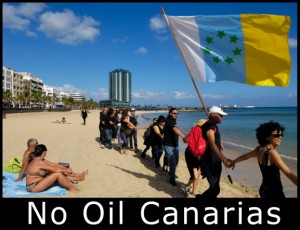http://www.reuters.com/article/2012/05/31/cuba-oil-repsol-idUSS1E84R01520120531
Repsol has led Cuba offshore oil exploration
* Likely departure follows dry holes, YPF nationalization
* U.S. embargo, high costs discourage Cuba exploration
Wed May 30, 2012 8:35pm EDT
By Jeff Franks
HAVANA, March 30 (Reuters) – Spanish oil firm Repsol’s likely decision to leave Cuba after its 12-year-long quest for offshore oil produced just two dry holes is a devastating and perhaps irrecoverable blow to the communist island’s oil hopes, experts said on Wednesday.
Its legacy of failure sends a discouraging signal about Cuba to the oil industry and its departure, which is not yet official but looks almost certain, will leave the Caribbean country without the company that has led efforts to explore its waters.
“They’ve been there since 2000, so I believe Repsol has performed over and above the call of duty. No other company I’ve known would have had the staying power Repsol has had,” said Cuba oil expert Jorge Pinon at the University of Texas in Austin.
Cuba says it may have 20 billion barrels of oil in its offshore fields, which offers the promise of ending its chronic economic woes and its dependence on Venezuelan oil.
Under President Hugo Chavez, Cuba’s closest ally, Venezuela ships the island 115,000 barrels a day in an oil-for-services deal, but his battle with cancer and fight for re-election in October have underscored the tenuous nature of the arrangement.
Repsol announced on May 18 that its long-anticipated well in the Florida Straits near Havana had come up dry, which followed its first unsuccessful well in the same general area in 2004. They are only offshore wells drilled in Cuba.
On Tuesday, Repsol chairman Antonio Brufau said at a Madrid news conference it was “almost certain” the company would not drill again in Cuba, where it has spent an estimated $150 million during its 12 years of work.
An official decision should come next week when Repsol meets with its partners in the wells, Norway’s Statoil and India’s ONGC Videsh, an Indian source said.
The withdrawal from Cuba was prompted in part by Repsol’s financial plan to recover from Argentina’s recent nationalization of its former state oil company YPF, purchased by Repsol in 1999.
BEST HOPE
At present, the best hope for Cuba’s offshore oil industry is a recently started well by Malaysia’s state-run Petronas and Russia’s Gazprom Neft about 100 miles (160 km) west of Havana.
They are using the same Chinese-built Scarabeo 9 drilling rig that Repsol contracted from Italian oil services company Saipem.
Another dry hole “could be game over for the Cubans. They’ve already got one strike against them,” said Jonathan Benjamin-Alvarado, a Cuba expert at the University of Nebraska in Omaha.
Venezuela’s PDVSA is tentatively scheduled to get the Scarabeo 9 next for a well west of the Petronas site.
The rig is being passed around because it is one of the few offshore drilling rigs in the world that does not violate limits on use of U.S. technology under Washington’s longstanding trade embargo against Cuba.
It is supposed to stay in Cuba until July 2013, although it could be shipped out earlier.
Repsol, which first leased Cuban offshore blocks in 2000, used one of the other eligible rigs for its 2004 well, then searched for years to find the Scarabeo 9, which was under construction in China.
It had to wait for the much-delayed completion and delivery of the rig, run the gauntlet of Cuban exile opposition in the United States, allay U.S. environmental concerns about a possible oil spill and struggle through Cuba’s formidable bureaucracy to bring the project to fruition.
It is unlikely that another company would go to such lengths to drill in Cuba, chiefly for economic reasons, Pinon said.
With the high cost of exploration, oil companies prefer to spend their money in places with the known potential for very big oil fields instead of frontier areas like Cuba with unknown prospects, he said.
“Companies leave or stay away from Cuba not because there’s not oil, but because it’s just not big enough (in terms of oil potential),” he said.
While Cuba says it has 20 billion barrels of oil offshore, the U.S. Geological Survey estimates just 5 billion barrels.
Cuba has the added disadvantage of the U.S. embargo, which increases costs by 18 to 22 percent because everything has to be shipped from afar, not the nearby United States, Pinon said.
Despite the problems, Benjamin-Alvarado believes a successful Petronas well could still bring a wave of exploration in Cuban waters.
“There is oil there, it’s just a matter of finding it,” he said. “If you talk to oil people at length, what you understand is that it’s always worth the risk. They are risk-takers for whom nothing ventured is nothing gained.”
(Additional reporting by Nidhi Verma in New Delhi, Svetlana Kovalyova in Milan and Balazs Koranyi in Oslo.; Editing by Christopher Wilson)
Special thanks to Richard Charter

